This is Ben!
November 19, 2015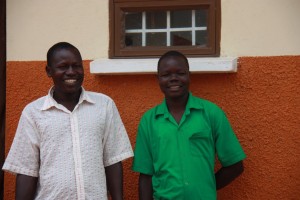 Ben is 15 years old and currently in P6 where he especially enjoys his mathematics and science classes. As his father, Edward (on the left), is the Deputy of Layima Primary School, Ben resides in the teachers quarter together with his mother, Mary, and sister, Patricia, who is in P3 in Atiak Primary School. His older brother, Francis, is in P7 at boarding school in Gulu.
Ben is 15 years old and currently in P6 where he especially enjoys his mathematics and science classes. As his father, Edward (on the left), is the Deputy of Layima Primary School, Ben resides in the teachers quarter together with his mother, Mary, and sister, Patricia, who is in P3 in Atiak Primary School. His older brother, Francis, is in P7 at boarding school in Gulu.
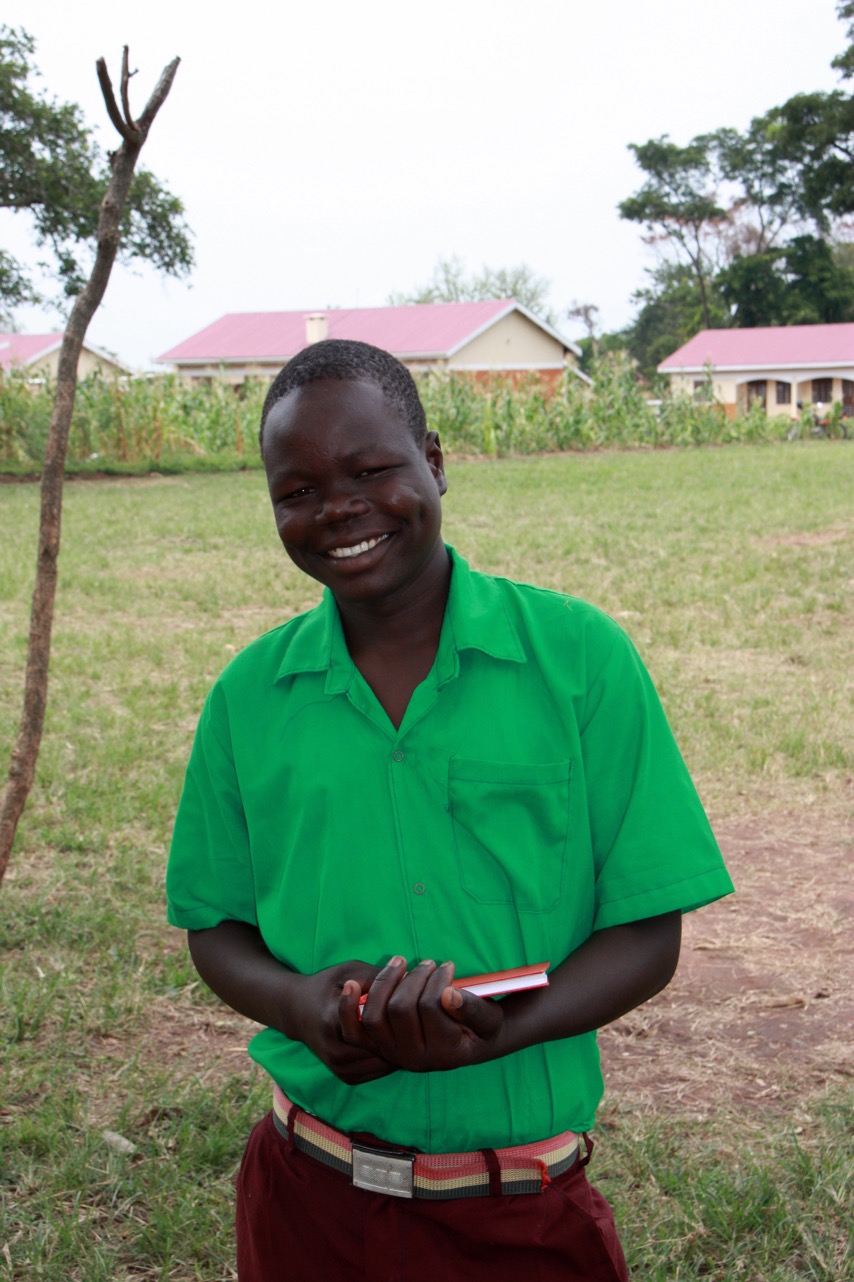 He first heard about the club during a school assembly and seeing the parent-led school demonstration garden develop right in front of his eyes and inspired by the thought of creating something similar with his fellow pupils, he was motivated to join the club. He clearly saw the benefits this club will have for each one of them:
He first heard about the club during a school assembly and seeing the parent-led school demonstration garden develop right in front of his eyes and inspired by the thought of creating something similar with his fellow pupils, he was motivated to join the club. He clearly saw the benefits this club will have for each one of them:
“It is good because in the event that you leave school and if you don’t continue with your further studies, the things that you have learnt, the farming skills that you have acquired from here, you can now apply at home and as you are living.”
Already a few months ago, when they had only had a few meetings yet, Ben was looking forward to getting the garden started, as he believes:
“I am going to acquire the skills for nursery bed management, so that I can then grow vegetables and earn lot of money from it.”
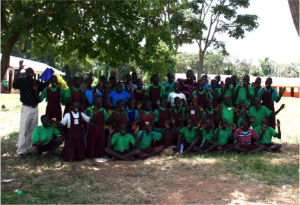 Ben is not only one of the 50 members of the pupils’ entrepreneurship club, but has also been selected to be the club’s chairman probably because of his very honourable and reserved nature. He represents the spokesperson of the pupils’ entrepreneurship club which also entails tasks such as “conducting meetings with visitors, if they come; and also to conduct meetings with the club members to agree on what they are going to do, their activities”.
Ben is not only one of the 50 members of the pupils’ entrepreneurship club, but has also been selected to be the club’s chairman probably because of his very honourable and reserved nature. He represents the spokesperson of the pupils’ entrepreneurship club which also entails tasks such as “conducting meetings with visitors, if they come; and also to conduct meetings with the club members to agree on what they are going to do, their activities”.
As the club’s chairperson he has already thought about possible challenges they could and preventive measurements – as for example: theft –
“I am worried that if the crops start performing well, some other children might come and start stealing it. That could be a potential challenge. Therefore, we will continuously, when we are in the school, monitoring it. But during weekends, since I come from the quarters, I will take charge as a chairperson!”
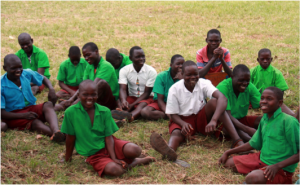 Ready to take up responsibility, Ben and his fellow pupils are looking forward to the “training on economic practices of onions and then training on business”. Ben already has a clear idea about how the profits could be used:
Ready to take up responsibility, Ben and his fellow pupils are looking forward to the “training on economic practices of onions and then training on business”. Ben already has a clear idea about how the profits could be used:
“I would prioritise the uniform, school uniforms, I would like to contribute towards that. And then, part of the income of the club is also contributed to the school to buy scholastic materials and the school can also, with my advice, buy a football – so that the children can play during games time.”
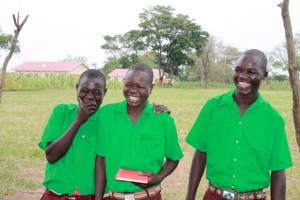 A proper football had to come on the list, just because the pupils love to play football – in particular Ben (centre) and his friends, Richard (left) and Francis (right)! Ben is a striker and tries to follow up with football, always cheering for Arsenal with Alexis Sánchez being his favourite player!
A proper football had to come on the list, just because the pupils love to play football – in particular Ben (centre) and his friends, Richard (left) and Francis (right)! Ben is a striker and tries to follow up with football, always cheering for Arsenal with Alexis Sánchez being his favourite player!
Layima Primary School
November 17, 2015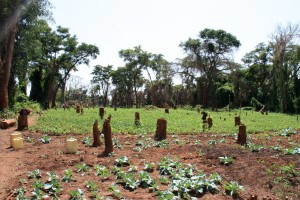 Layima Primary School is a remote school, surrounded by green fields and beautiful majestic trees. The school has come a long way since its humble beginnings in 1982 as a small community school. With the support of organisations such as Save the Children and NUDEIL, they have been able to build appropriate teachers’ houses and classrooms blocks for the nine teachers and 381 pupils of the school:
Layima Primary School is a remote school, surrounded by green fields and beautiful majestic trees. The school has come a long way since its humble beginnings in 1982 as a small community school. With the support of organisations such as Save the Children and NUDEIL, they have been able to build appropriate teachers’ houses and classrooms blocks for the nine teachers and 381 pupils of the school:
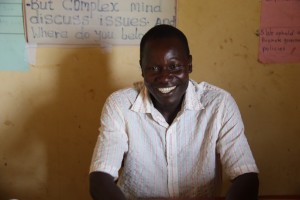 “If I am to compare the way this school has started, and where it is now – because at first, like let’s take from myself, because I am now making 3 years. The first time I came, there was no road leading to this school; not even borehole – you had to move a distance to collect water; no proper accommodation as for now; even, we don’t have even classes, but at the moment, we have. At first we have started with 100 something pupils, but now we are reaching 400! The school is now climbing the latter.” (Edward, Deputy (photo))
“If I am to compare the way this school has started, and where it is now – because at first, like let’s take from myself, because I am now making 3 years. The first time I came, there was no road leading to this school; not even borehole – you had to move a distance to collect water; no proper accommodation as for now; even, we don’t have even classes, but at the moment, we have. At first we have started with 100 something pupils, but now we are reaching 400! The school is now climbing the latter.” (Edward, Deputy (photo))
Step by step, the school is trying to overcome the challenges it faces – like the lack of parental awareness of the importance of education and involvement: parents often stop their children from going to school in the rainy season, as they are needed for harvesting crops; additionally, the majority of parents struggle to pay school fees which triggers severe financial difficulties for the school. This is exactly why the SDG project is so important for the school:
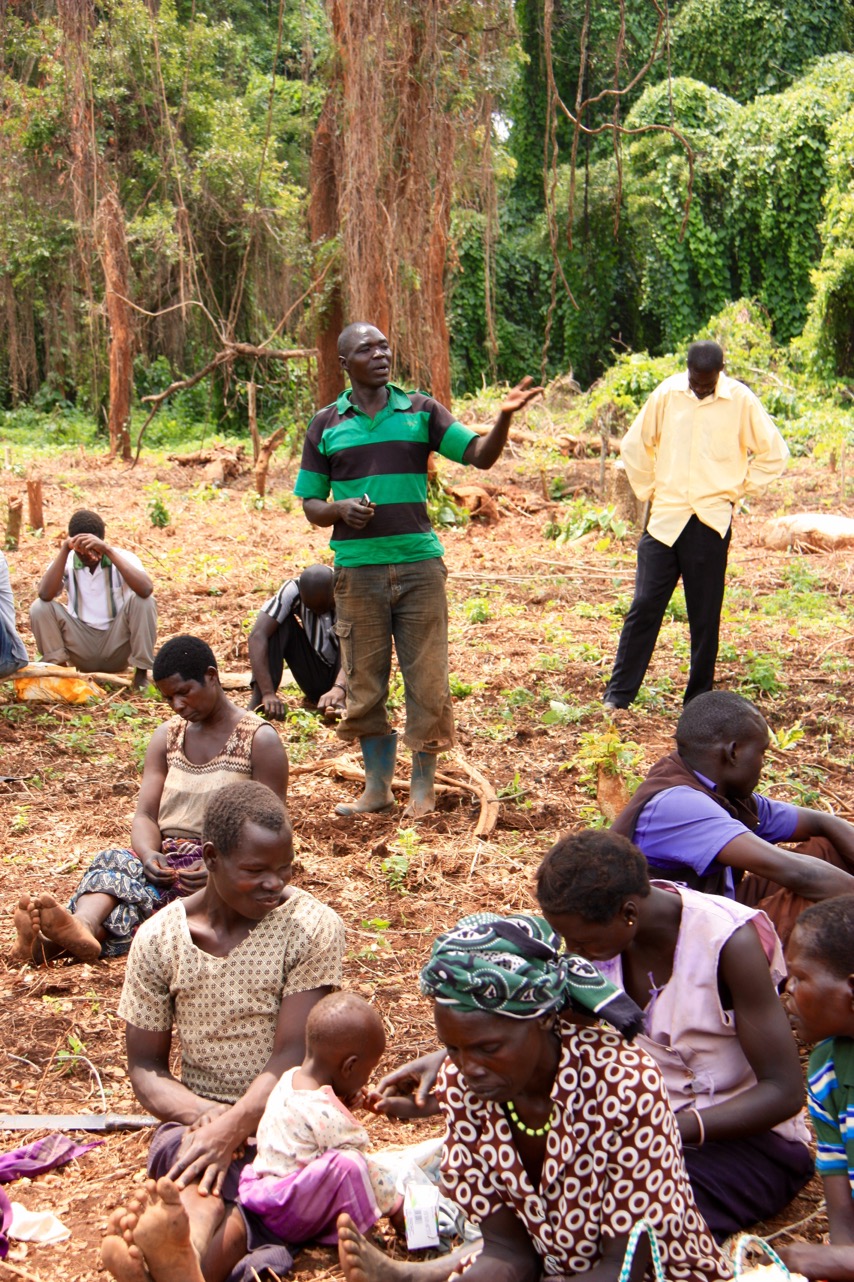 “This SDG can be one of the methods of creating awareness to the parents and they are now able to see the importance of education – through what they are doing in the club: The parents are learning in the club, because AR is giving them methods of planting, how to take care of crops, the methods of spraying, so they realise “how would I know this kind of pesticide to spray, if I have not gone? Now since my time is over, can I now reinforce the learning of my child?”
“This SDG can be one of the methods of creating awareness to the parents and they are now able to see the importance of education – through what they are doing in the club: The parents are learning in the club, because AR is giving them methods of planting, how to take care of crops, the methods of spraying, so they realise “how would I know this kind of pesticide to spray, if I have not gone? Now since my time is over, can I now reinforce the learning of my child?”
Through the parents we can give some light sensitisation as they spread the knowledge with the community. And now, on top of this, when the project is over, we can still mobilise people to make a larger group! Now when you start doing this there was a lot of information to take in, but people will see “ok I have now come to realise that it is my responsibility to make this place better” – so we can use this small group to expand to the other. So that I hope, within this year, that you will see a lot of changes to come. ” (Paul, pupils’ club focal teacher)
Deputy, Edward, even gives example of changes:
 “At first, parents, most of the parents, they don’t come to school to visit their children, to see how their children are studying but with this demonstration, they have started coming. When they will be coming for the work, some of them take they time and monitor how the children are learning. The way it is, they have heard that they are going to benefit, and one of the benefit, the day they will sell these, whatever they are doing, part of that money, they will pay for their children to go to the school – that’s what they are usually saying. And more so, some of them, started doing this community work at school – like clearing this field. They did it. To me, I think, it is because of this demonstration – otherwise, they wouldn’t have done it.”
“At first, parents, most of the parents, they don’t come to school to visit their children, to see how their children are studying but with this demonstration, they have started coming. When they will be coming for the work, some of them take they time and monitor how the children are learning. The way it is, they have heard that they are going to benefit, and one of the benefit, the day they will sell these, whatever they are doing, part of that money, they will pay for their children to go to the school – that’s what they are usually saying. And more so, some of them, started doing this community work at school – like clearing this field. They did it. To me, I think, it is because of this demonstration – otherwise, they wouldn’t have done it.”
Moreover, the Deputy has also seen the skills which can be transferred back to the parents’ villages and greater community:
“For example, there is one woman here, who has started using this, how do you call it, it is a system of planting, where you get a sack, pour some sand inside and you put holes in side for onions … There are many in this community. They have started practising. That is really very encouraging.”
Furthermore, an unexpected benefit which the school has experienced through the SDG, is a slow easing of a land dispute between the original land owner and founder of the school grounds and the community. Ever since his wife and other members of his family have been taking part in the SDG, the situation has become more peaceful and slow reconciliation is taking place.
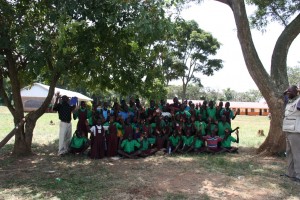 Not only is the parent-led SDG enjoying success at the school, pupils were also eager to join the pupils’ entrepreneurship club ! The pupils are actively participating with great motivation which is sure, to make this project successful! Additionally, teachers unanimously agree that the pupils’ club will be beneficial for its members, as well as the greater community:
Not only is the parent-led SDG enjoying success at the school, pupils were also eager to join the pupils’ entrepreneurship club ! The pupils are actively participating with great motivation which is sure, to make this project successful! Additionally, teachers unanimously agree that the pupils’ club will be beneficial for its members, as well as the greater community:
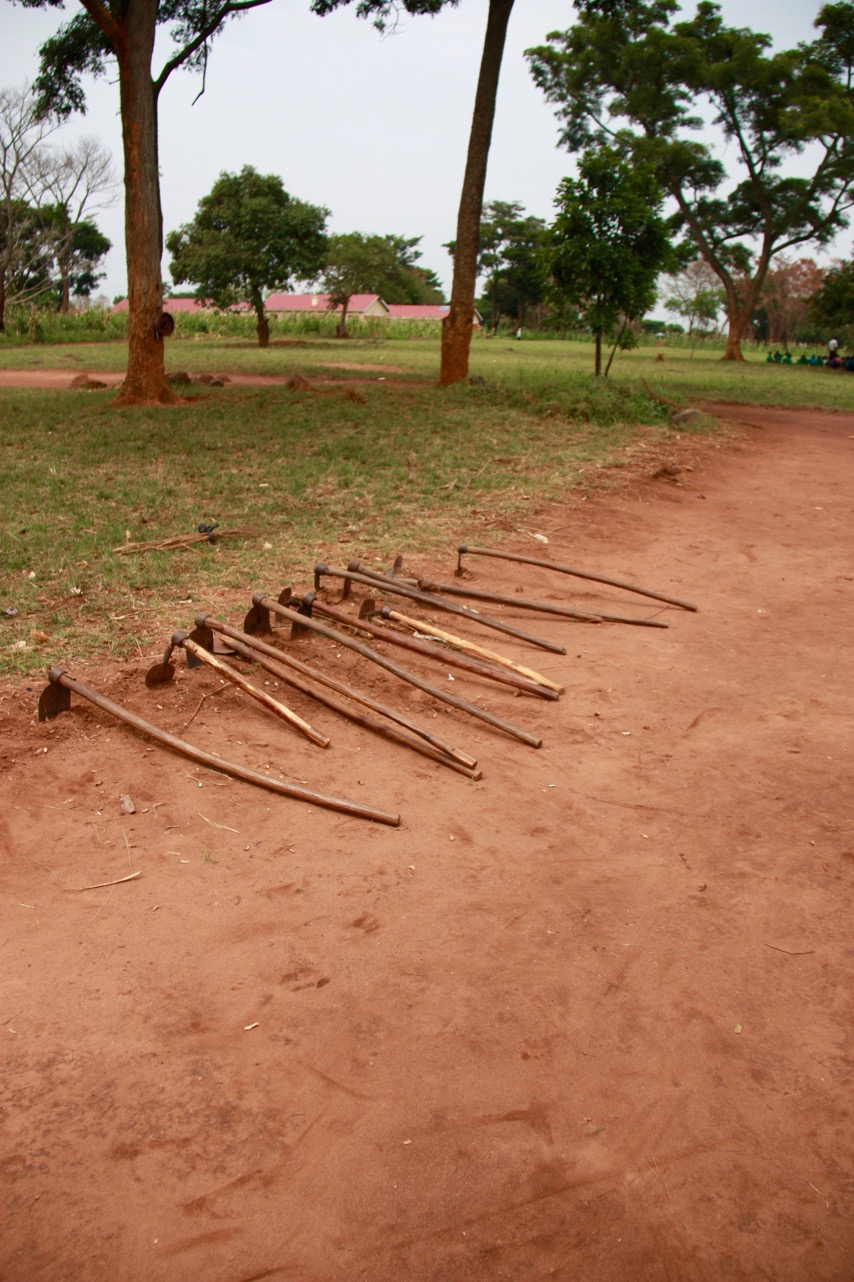 Yeah acquiring agriculture skills are important, because they can, from here, even if those who cannot be in position to go further with their studies, they can be self-reliance. They can feed them by themselves. And more so, this project can encourage them to do much even from home. (Edward, Deputy)
Yeah acquiring agriculture skills are important, because they can, from here, even if those who cannot be in position to go further with their studies, they can be self-reliance. They can feed them by themselves. And more so, this project can encourage them to do much even from home. (Edward, Deputy)
This club is really very interesting, because it promotes pupils to being self-reliant, cause when they practise like planting onions, when they practise like when they are in the school here, and then when they go back to their villages, I think, when they go back with what we have given them, plant here properly, from who they will go and direct income. So it is very welcoming to me. (Patrick, club’s focal teacher)
Posted in News | Leave a commentDouble Your Donation on the Big Give Christmas Challenge!
November 17, 2015The Big Give Christmas Challenge
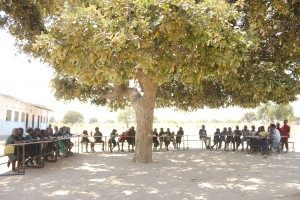 African Revival has been selected to be part of the Big Give Christmas Challenge 2015 – this means we’ll be eligible to get match-funding to build latrines and hand-washing facilities as well as provide teaching and learning materials for Sikalele Community School, in southern Zambia.
African Revival has been selected to be part of the Big Give Christmas Challenge 2015 – this means we’ll be eligible to get match-funding to build latrines and hand-washing facilities as well as provide teaching and learning materials for Sikalele Community School, in southern Zambia.
We’ve already secured £3,150 in pledges in the first phase of the challenge – but to secure the total £6,300 we’re eligible to receive on top of this from the Big Give, we need to raise £6,300 from online donations when the challenge opens. That’s where you come in!
The next phase of the challenge will be open between midday and midnight on Friday 4th December, when donations made to our Sikalele project on the Big Give websitewill be doubled! So if you donate £200, we’ll receive £400 (until we reach our target, or the match-funding pot runs out).
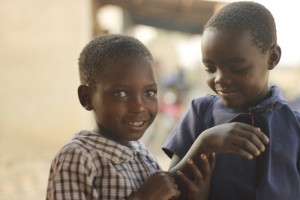 Not around on Friday 4th December? Don’t worry! The online donation window will open again on Saturday 5th December from midday, and will close at 5pm on Monday 14th December.
Not around on Friday 4th December? Don’t worry! The online donation window will open again on Saturday 5th December from midday, and will close at 5pm on Monday 14th December.
The key thing to remember is that this is a competition for all the charities on the challenge – as there isn’t enough match-pot funds for all charities to reach their targets. That means we need as many online donations as possible on the 4th and 5th December, as matching is done a first-come-first-served basis. After the matching-pot runs out, you’ll still be able to donate to the project, but your donation won’t be matched.
Sikalele Community School
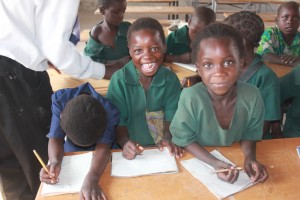 Sikalele Community is located in Kalomo, a town in one of the most impoverished areas of southern Zambia. The area faces complex barriers to quality education provision, recording the poorest national and district exam results. Despite these problems, African Revival is the only international NGO remaining in the area.
Sikalele Community is located in Kalomo, a town in one of the most impoverished areas of southern Zambia. The area faces complex barriers to quality education provision, recording the poorest national and district exam results. Despite these problems, African Revival is the only international NGO remaining in the area.
Sikalele currently has a big intake with 405 pupils aged 7- 19, but only 4 teachers and 2 classroom blocks with very few basic facilities. The school is especially lacking in toilets and teaching/learning materials, with just 6 latrines and 20 up-to-date textbooks between all 405 pupils currently enrolled. Consequently, Sikalele urgently needs a greater number of latrines, as well as hand-washing facilities, and more basic teaching/learning materials like textbooks and pens.
Latrines, Hand-Washing Facilities and Teaching/Learning Materials
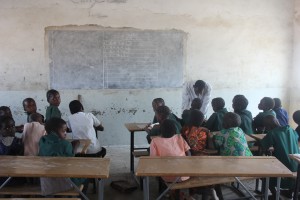 Sikalele Community School is in desperate need of teaching/learning materials, permanent latrines and hand-washing facilities. But despite these obstacles, the teachers, community and pupils are all working very hard to do their bit in making Sikalele the best it can be. Here at African Revival, our goal is help children’s dreams grow and not get squashed, which is why we want to continue supporting the school in meeting these needs so that the children of Sikalele can enjoy a quality education which will enable them to pursue bright futures and fulfil all their dreams-more than they ever thought possible!
Sikalele Community School is in desperate need of teaching/learning materials, permanent latrines and hand-washing facilities. But despite these obstacles, the teachers, community and pupils are all working very hard to do their bit in making Sikalele the best it can be. Here at African Revival, our goal is help children’s dreams grow and not get squashed, which is why we want to continue supporting the school in meeting these needs so that the children of Sikalele can enjoy a quality education which will enable them to pursue bright futures and fulfil all their dreams-more than they ever thought possible!
Please help us provide latrines, hand-washing facilities and teaching and learning materials at Sikalele by donating online through the Big Give Christmas Challenge on the 4th and 5th December 2015.
Want to know more about the project or the challenge itself? Just follow these links:
Posted in News | Leave a commentWelcome Lily!
November 16, 2015Today we ar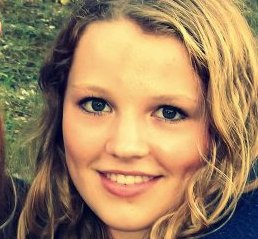 e very excited to welcome new volunteer Lily Kelly-Tarrant to the UK office! Lily joins African Revival as a Trusts and Foundations Volunteer. She is half way through her Undergraduate Degree in International Development at the University of Sussex. She has volunteered in Malawi, Kenya and Ghana and is excited to build her skills and experience at African Revival. Lily also enjoys music and loves to dance.
e very excited to welcome new volunteer Lily Kelly-Tarrant to the UK office! Lily joins African Revival as a Trusts and Foundations Volunteer. She is half way through her Undergraduate Degree in International Development at the University of Sussex. She has volunteered in Malawi, Kenya and Ghana and is excited to build her skills and experience at African Revival. Lily also enjoys music and loves to dance.
Click here to find out more about our volunteering opportunities!
Posted in News | Leave a commentMeet Christopher!
November 12, 2015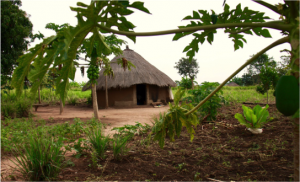 Christopher lives about 1km away from the school in the midst of the beautiful fields of Amuru District, together with his wife and his eight children. The youngest one is only 3 years old. Two of them, Grace and Mary, attend Labala Primary School – Grace is in P7 and wants to become a nurse one day; and Mary (P6) dreams of becoming a policewoman. The family is fortunate to own an extensive amount of land (50-60 ha) and as Christopher works in farming and petty-trade, agriculture skills are very important for him.
Christopher lives about 1km away from the school in the midst of the beautiful fields of Amuru District, together with his wife and his eight children. The youngest one is only 3 years old. Two of them, Grace and Mary, attend Labala Primary School – Grace is in P7 and wants to become a nurse one day; and Mary (P6) dreams of becoming a policewoman. The family is fortunate to own an extensive amount of land (50-60 ha) and as Christopher works in farming and petty-trade, agriculture skills are very important for him.
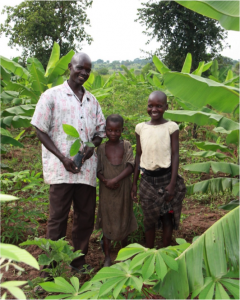 Growing up in a farming background, he is happy to see his children appreciate the value of agriculture skills for their future, despite their different aspirations:
Growing up in a farming background, he is happy to see his children appreciate the value of agriculture skills for their future, despite their different aspirations:
“The bottom line is they are all interested the same, even if they will get this profession, they still want to do farming too. They are interested, even currently, they are already taking part in the home gardens. So they are very interested to also participate in the club garden!”
Christopher’s oldest son, 21 years of age, has even decided to take up agriculture in his professional life, currently undergoing teacher training with a major in agriculture.
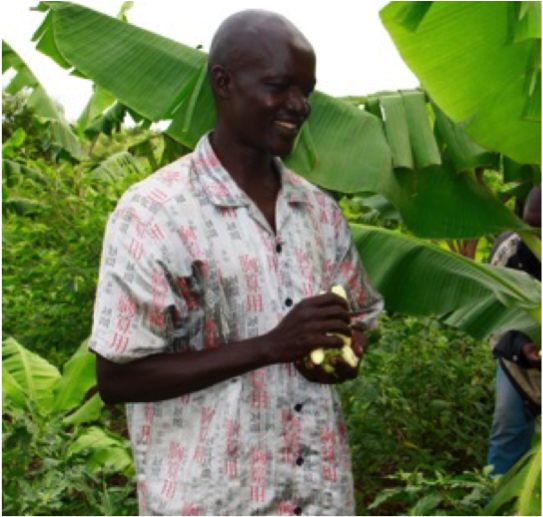 Additionally, only last year, Christopher realised the importance and value of farming, once again:
Additionally, only last year, Christopher realised the importance and value of farming, once again:
“When I was in Senior 2, I had a great passion for farming. I planted 12 Eucalyptus trees in 1992. Last year, this helped me a lot in paying school fees for my children. We cut eight stems and sold them off to pay the school fees – since then, I have seen the benefits of growing fruits and trees at home again, and I am not going to stop.”
Given this centrality of farming in his life, it is not surprising that Christopher was eager to seize the opportunity to acquire more agriculture skills. As Christopher is the PTA chairperson (Parents and Teachers Association), he was one of the first to find out about the project and was immediately motivated to mobilise parents to join:
Following the sensitisation, when they told us about the multiple benefits of this school gardens, including the benefit to the parents, to the pupils and also the benefits to the school – and based on the experience shared from other schools which had already benefited from this project, I took interests and said, I wanted to be part of this project – so that we can also divide the benefits from the project. There is especially one key thing that motivated me. It was that, after the parents have learnt the good practice from here, they will translate the knowledge and the skills home; and then they will apply it in their gardens; and then they will increase their production, and make food available for the household; and they will also be able to support the children with packed food to come to school!
Six months in, Christopher’s general impressions is very positive:
“I have seen that this programme is good, because it is linking the parents to the school. The project, it is going to empower the parents financially: it is going to create income for the parents – from the sale of the products of the garden, and also through the Village Saving and Loan Scheme, which is starting. So I am very happy, and appreciate this project so much, because the biggest challenges among the parents is the lack of money.”
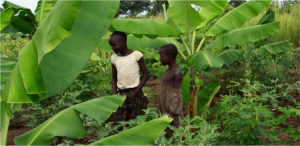 Although Christopher is regularly visiting the school due to his position as the PTA chairperson, he still appreciates how the project has triggered a greater connection to his children’s education:
Although Christopher is regularly visiting the school due to his position as the PTA chairperson, he still appreciates how the project has triggered a greater connection to his children’s education:
“The project has connected me very well, because each time the parents have they meeting, I come to school, and I am also able to follow whether they are in class, whether they have come to school and also when they go back home, I will also interact with them and say ‘today I was in your school for the parents gardens work’, so I am able to follow up with my children.”
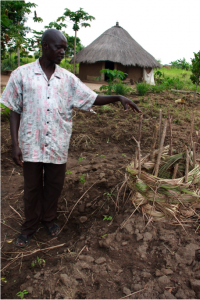 And Christopher has also benefited from the project in a very personal way:
And Christopher has also benefited from the project in a very personal way:
“Since I joined the group, I have appreciated and acquired good knowledge of planting in lines and I have also acquired the skills for making kitchen gardens, which I use to supply my home; and using a small piece of land to increase your production – which is a key knowledge I acquired and will be applying. I have also developed a passion for growing vegetables – I have planted 1/2 hectare of tomatoes! I also want to join the VSLA because it will help me manage my finances better”
Additionally, “After applying the knowledge, which I have acquired from the gardens, at home, it is also helping my family members to learn from the good practices and it is also increasing their production in the home garden.”
Today, Christopher has perfectly implemented the kitchen garden right next to his huts in order to provide his family with food, close to home. This is making a great difference for his wife, as she will now be able to make better use of their home-grown produce.
Additionally, thanks to his new skills and re-newed passion, his fields and his home garden are thriving! He was able to acquire several very favourable deals or even donations of seedlings, for mangos, bananas to eggplants, tomatoes and cacao. He is now trying to keep an eye on details and approaches his farming work with respectable planning. For example, he has brought the plantation of fruits closer to his residence, as a lot of it was stolen.
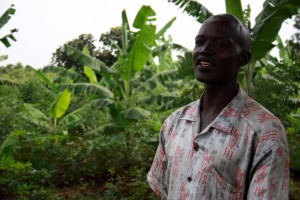 Booming with motivation and aspirations, he now has a very clear idea of how he is going to use his earnings from the SDG:
Booming with motivation and aspirations, he now has a very clear idea of how he is going to use his earnings from the SDG:
“I will prioritise on payment of school fees for the children, and then also I also want to save more money so that I can acquire a piece of land within the trading centre and built a structure, so that I can boost his business of petty-trade, of selling produce, because I am sure that in the coming year, his bananas will start producing. Plus I have other fruits too, so I want to get a place in the centre where he can sell.”
With his mind set and focused, Christopher is step by step turning his business idea into reality!
Posted in News | Leave a commentIt’s harvest time!
November 9, 2015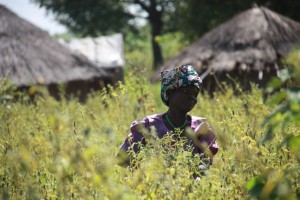 As summer draws to a close, it is time to reap the fruits of the passed months’ labour before the frosts and heavy rains come. Seasons are changing and for farmers all over the world, it is time to harvest
As summer draws to a close, it is time to reap the fruits of the passed months’ labour before the frosts and heavy rains come. Seasons are changing and for farmers all over the world, it is time to harvest
So after months of hard work, care and patience, and overcoming several challenges such as a prolonged draught and stray animals, our 15 SDG groups in Amuru district also gathered to complete their first season harvest.
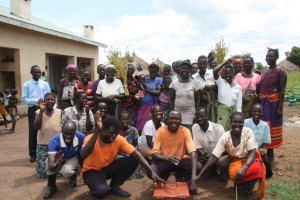 Since the project started in March 2015, eight hundred and thirty seven (837) parents have been coming to our partner schools on a weekly basis to participate, exceeding our outcome target of mobilising 700 parents. After the groups had been established, they chose four types of crops for their school garden and the work began – as well as the training. Groups have now been trained in: good agronomic practices such as site selection, nursery bed operations, seedbed preparation, row planting or integrated pest and disease management (IPM). And they have learnt how to plant, transplant and care for their chosen crops and were finally able to see the first results. While the perennial crops like bananas, pawpaw (papaya), pineapples, jack fruits, passion fruits and citrus will take a bit more time, boxes, tins and sacks were filled with beans, maize, onions & co and put on the market.https://africanrevival.org/wp-admin/post-new.php#
Since the project started in March 2015, eight hundred and thirty seven (837) parents have been coming to our partner schools on a weekly basis to participate, exceeding our outcome target of mobilising 700 parents. After the groups had been established, they chose four types of crops for their school garden and the work began – as well as the training. Groups have now been trained in: good agronomic practices such as site selection, nursery bed operations, seedbed preparation, row planting or integrated pest and disease management (IPM). And they have learnt how to plant, transplant and care for their chosen crops and were finally able to see the first results. While the perennial crops like bananas, pawpaw (papaya), pineapples, jack fruits, passion fruits and citrus will take a bit more time, boxes, tins and sacks were filled with beans, maize, onions & co and put on the market.https://africanrevival.org/wp-admin/post-new.php#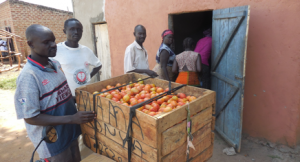 In this respect, each groups’ marketing committee also underwent specific training to acquire valuable marketing skills. The ability to identify lucrative markets and negotiate good prices is decisive in transforming their farming endeavour into a business. Ten SDG groups have already managed to sell their produce at the local markets and earn their first income. Pawel Langeta P/S’s group has even secured their first business deal, as they found a buyer from the border with South Sudan to buy their tomatoes at good price! Soon our participants will be able to generate more income, as they have already started to plant the crops for the second season.
In this respect, each groups’ marketing committee also underwent specific training to acquire valuable marketing skills. The ability to identify lucrative markets and negotiate good prices is decisive in transforming their farming endeavour into a business. Ten SDG groups have already managed to sell their produce at the local markets and earn their first income. Pawel Langeta P/S’s group has even secured their first business deal, as they found a buyer from the border with South Sudan to buy their tomatoes at good price! Soon our participants will be able to generate more income, as they have already started to plant the crops for the second season.
When income is being generated, it is important that money is handled well, which is why parents have also received VSLA training (Village Savings and Loan Association) which instils good financial management, and gives them a platform to begin saving. In addition, the loan system also offers them the opportunity to gain financial capabilities to start their own business.
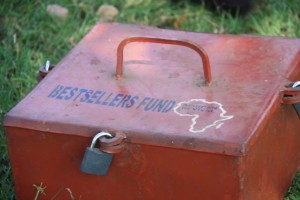 Among some of the interesting activities, is the VSLA. It has already instilled a saving culture in us and we believe to become good investors when we save in the future. We are looking at ourselves as future investors and entrepreneurs who can have a big hectares of land and income out of what we have produced.
Among some of the interesting activities, is the VSLA. It has already instilled a saving culture in us and we believe to become good investors when we save in the future. We are looking at ourselves as future investors and entrepreneurs who can have a big hectares of land and income out of what we have produced.
(Lujuro P/S headteacher)
For about 30% of participants, the project is already having a positive impact at home, as they replicate the knowledge and skills learnt. These parents are increasing their production on the household level by, on average, cultivating about 1-2 acres of land each with a variety of crops, such as millet, cassava and vegetables. This again has lead to an increased food security: 69 out of 700 households are food secured (eating 3 meals a day) and many households are eating 2 meals a day hence on fast track of attaining food security. Additionally, following the trainings in nutritious food production and consumption, all parents participating in the SDG are reporting to have a balanced diet consuming vegetables rich in vitamins and essential minerals!
Parents are becoming closer and closer to their schools. At Layima P/S, they have come to recognise the value of education and the necessity of parental support – which is why:
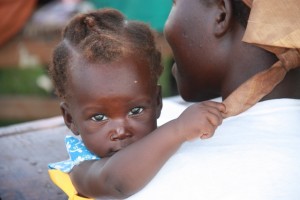 After distributing the 40% of our SDG profit, we will be the first people to pay the school fees, to set a good example to the entire parents. It gives us room to advocate to the other parents to pay their school fees on time.
After distributing the 40% of our SDG profit, we will be the first people to pay the school fees, to set a good example to the entire parents. It gives us room to advocate to the other parents to pay their school fees on time.
(Head of Marketing)
Parents’ reinforced impact is also visible in other areas – for example the number of children with parents providing meals while at school has risen to 5,078 in term III from 3,000 pupils in term I, across the 15 schools. Improvements are also starting to crystallise looking at pupils performance. Although PLE results will only be available next quarter, five schools are already recording improved performances in their termly exams as the number of pupils who passed in DIV I and Div II has increased during term II in comparison to term I. Additionally, there has been a reduction of pupils not taking the exams in four schools, notably in Otong P/S where the number went down from 32 to 4!
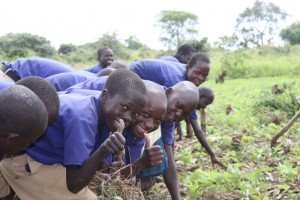 At each school, 50 pupils are also taking part in pupils’ entrepreneurship clubs, which equips them with valuable agricultural and business skills while generating profit to improve their school. Not all pupils will continue with their education after finishing primary school. In this case, the skills acquired in this project will be especially crucial to them. In a total of five schools, pupils were already able to set out for their first harvest and after being trained in valuable marketing skills, are now looking for lucrative opportunities to sell their produce!
At each school, 50 pupils are also taking part in pupils’ entrepreneurship clubs, which equips them with valuable agricultural and business skills while generating profit to improve their school. Not all pupils will continue with their education after finishing primary school. In this case, the skills acquired in this project will be especially crucial to them. In a total of five schools, pupils were already able to set out for their first harvest and after being trained in valuable marketing skills, are now looking for lucrative opportunities to sell their produce!
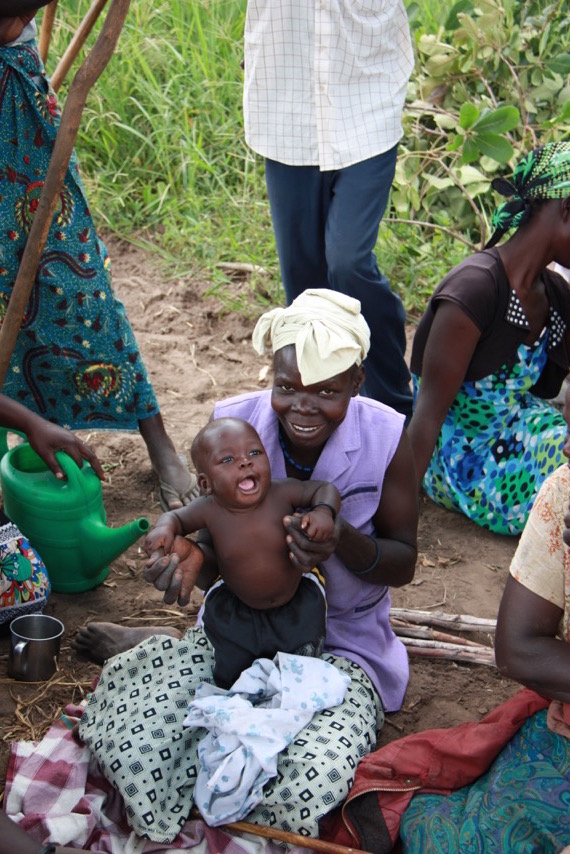 With one harvest completed, new skills and knowledge acquired, and seeds already flourishing in the ground for next season, parents, teachers and pupils are looking confidently and enthusiastically into a prosperous future!
With one harvest completed, new skills and knowledge acquired, and seeds already flourishing in the ground for next season, parents, teachers and pupils are looking confidently and enthusiastically into a prosperous future!
Posted in News | Leave a comment
SDG at Labala Primary School!
November 7, 2015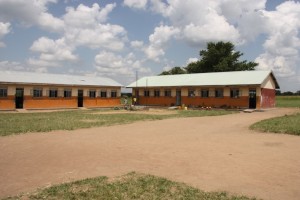 Labala Primary School is one of the 15 schools involved in our School Demonstration Gardens programme. Every day, 760 pupils, from P1 to P7, flock to their classrooms. Hearing about the project at the first sensitisation meeting and launch, the school and community welcomed the project wholeheartedly – over 200 parents turned up to the first sensitisation meeting!
Labala Primary School is one of the 15 schools involved in our School Demonstration Gardens programme. Every day, 760 pupils, from P1 to P7, flock to their classrooms. Hearing about the project at the first sensitisation meeting and launch, the school and community welcomed the project wholeheartedly – over 200 parents turned up to the first sensitisation meeting!
The school is excited to see the programme bring about positive changes at their school and have already identified where its profits are most needed:
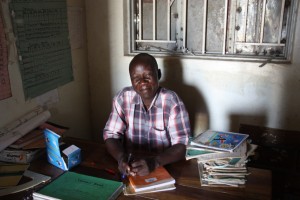 “The money that we shall get out of the items sold will go to – because in a school of this kind, we have certain items which the school cannot afford to buy for the learners, like the learning materials, part of it we will give and then go and buy those items which will facilitate learning – no only that! And also the needy, we shall make part of it to help the needy.” (Charles, School Management Committee Chairperson)
“The money that we shall get out of the items sold will go to – because in a school of this kind, we have certain items which the school cannot afford to buy for the learners, like the learning materials, part of it we will give and then go and buy those items which will facilitate learning – no only that! And also the needy, we shall make part of it to help the needy.” (Charles, School Management Committee Chairperson)
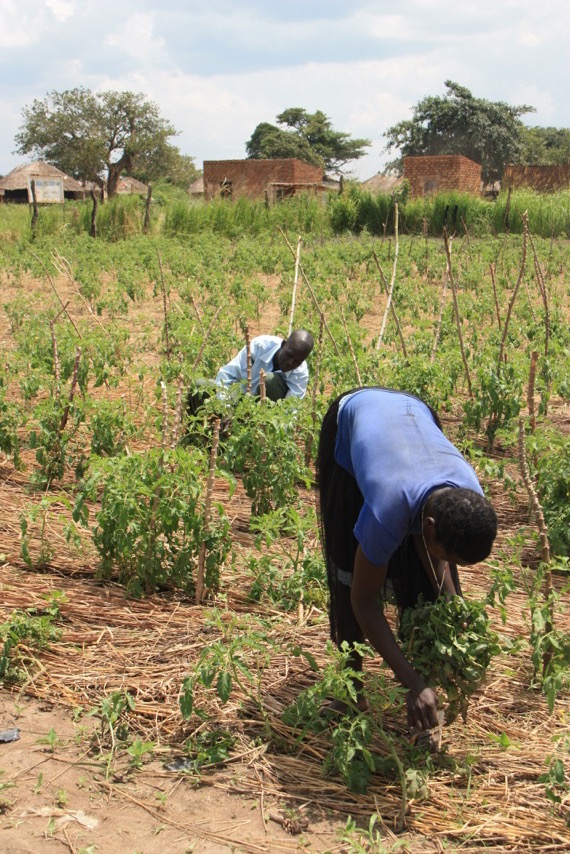 In their first season the parents SDG group planted Although they struggled with an unexpectedly prolonged draught and pests, their enthusiasm and interest has not ceased. Contrarily, their number has even increased from 47 to 57 members! Additionally, Christopher, a SDG member and PTA chairperson, is happy to tell us about the positive changes it has triggered:
In their first season the parents SDG group planted Although they struggled with an unexpectedly prolonged draught and pests, their enthusiasm and interest has not ceased. Contrarily, their number has even increased from 47 to 57 members! Additionally, Christopher, a SDG member and PTA chairperson, is happy to tell us about the positive changes it has triggered:
“At first and foremost, it has motivated parents that if they contribute, that if they come to school and then they contribute towards the development of the school, it will lead to better education outcomes of the learners of this school. And then secondly, it has encouraged the parents to work hard, because they know they will benefit, and also the children will benefit! And also it has created unity among the parents who are here, both male and female in also doing other farming activities! – Like in the villages, in the communities where they come from they think weeding is women’s responsibility, but here in this school garden, both men and women are doing the same and they do it very well. So for me, these are very positive things!”
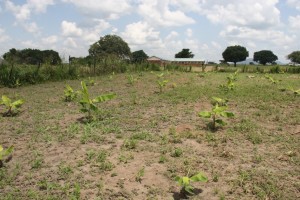 They harvested 1/4 acre of onions and 1/4 acre of tomatoes at the end of the first season – and when they sold it, they made a profit of a total of 249 000 sh! And their banana trees are also growing well!
They harvested 1/4 acre of onions and 1/4 acre of tomatoes at the end of the first season – and when they sold it, they made a profit of a total of 249 000 sh! And their banana trees are also growing well!
With the pupils club up and running, Charles starts seeing the benefits of it:
“It helps them, because generally to my seeing, not all those pupils will go for further study. The little skills, they have acquired here, as they leave school, they will use it at home, to help them to sustain their life. And when they are in a club like that they come together. As they come together they will share ideas, by so doing that one, it will increase their ability of thinking, sharing ideas, coming together as one person, respect one’s idea and many others.”
Additionally, there has been a significant reduction of pupils not taking their end of year exams from 30 to only 10! Furthermore, teachers have also made great use of the parent-led School Demonstration Garden, using it as a site of practical learning for certain lessons, such as agriculture. Thereby, the pupils are able to get a glimpse of how agricultural theory is put into practice, automatically boosting their own learning !
In addition, we were thrilled to hear that parents have started to take their acquired knowledge out to the greater community and to apply newly learnt skills and techniques in their home gardens! – one of these parents is Christopher of whom you will find out more next week!
Posted in News | Leave a commentWelcome Carl!
November 6, 2015Today we are very pleased to welcome Carl Staniforth to the team as a Trusts & Foundations Volunteer! He’ll be joining us in the UK office to support us with all things trusts and foundations related 🙂
Carl joins us this month after deciding work was taking up too much of his spare time. He is also an active Scout leader, would-be runner, cyclist and swimmer, and enjoys outdoors adventures and beer-brewing among other things.
after deciding work was taking up too much of his spare time. He is also an active Scout leader, would-be runner, cyclist and swimmer, and enjoys outdoors adventures and beer-brewing among other things.
When forced to work he is a freelance commercial consultant providing services to the construction industry.
Welcome to #TeamAR Carl!
Posted in News | Leave a comment
Double your donation in the Big Give Christmas Challenge!
November 6, 2015The Big Give Christmas Challenge
 African Revival has been selected to be part of the Big Give Christmas Challenge 2015 – this means we’ll be eligible to get match-funding to build latrines and a borehole as well as provide teaching and learning materials for Siklalele Community School, in southern Zambia.
African Revival has been selected to be part of the Big Give Christmas Challenge 2015 – this means we’ll be eligible to get match-funding to build latrines and a borehole as well as provide teaching and learning materials for Siklalele Community School, in southern Zambia.
We’ve already secured £3,150 in pledges in the first phase of the challenge – but to secure the total £6,300 we’re eligible to receive on top of this from the Big Give, we need to raise £6,300 from online donations when the challenge opens. That’s where you come in!
The next phase of the challenge will be open between midday and midnight on Friday 4th December, when donations made to our Sikalele project on the Big Give website will be doubled! So if you donate £200, we’ll receive £400 (until we reach our target, or the match-funding pot runs out).
 Not around on Friday 4th December? Don’t worry! The online donation window will open again on Saturday 5th December from midday, and will close at 5pm on Monday 14th December.
Not around on Friday 4th December? Don’t worry! The online donation window will open again on Saturday 5th December from midday, and will close at 5pm on Monday 14th December.
The key thing to remember is that this is a competition for all the charities on the challenge – as there isn’t enough match-pot funds for all charities to reach their targets. That means we need as many online donations as possible on the 4th and 5th December, as matching is done a first-come-first-served basis. After the matching-pot runs out, you’ll still be able to donate to the project, but your donation won’t be matched.
Sikalele Community School
 Sikalele Community is located in Kalomo, a town in one of the most impoverished areas of southern Zambia. The area faces complex barriers to quality education provision, recording the poorest national and district exam results. Despite these problems, African Revival is the only international NGO remaining in the area.
Sikalele Community is located in Kalomo, a town in one of the most impoverished areas of southern Zambia. The area faces complex barriers to quality education provision, recording the poorest national and district exam results. Despite these problems, African Revival is the only international NGO remaining in the area.
Sikalele currently has a big intake with 405 pupils aged 7- 19, but only 4 teachers and 2 classroom blocks with very few basic facilities. The school is especially lacking in toilets and teaching/learning materials, with just 6 latrines and 20 up-to-date textbooks between all 405 pupils currently enrolled. Consequently, Sikalele urgently needs a greater number of latrines, as well as a borehole for fresh water, and other basic learning materials like textbooks and pens.
Latrines, Boreholes and Teaching/Learning Materials
 Sikalele Community School is in desperate need of teaching/learning materials, permanent latrines and a borehole. But despite these obstacles, the teachers, community and pupils are all working very hard to do their bit in making Sikalele the best it can be. Here at African Revival, our goal is help children’s dreams grow and not get squashed, which is why we want to continue supporting the school in meeting these needs so that the children of Sikalele can enjoy a quality education which will enable them to pursue bright futures and fulfil all their dreams-more than they ever thought possible!
Sikalele Community School is in desperate need of teaching/learning materials, permanent latrines and a borehole. But despite these obstacles, the teachers, community and pupils are all working very hard to do their bit in making Sikalele the best it can be. Here at African Revival, our goal is help children’s dreams grow and not get squashed, which is why we want to continue supporting the school in meeting these needs so that the children of Sikalele can enjoy a quality education which will enable them to pursue bright futures and fulfil all their dreams-more than they ever thought possible!
Please help us provide latrines, a borehole and teaching and learning materials at Sikalele by donating online through the Big Give Christmas Challenge on the 4th and 5th December 2015.
Want to know more about the project or the challenge itself? Just follow these links:
Posted in News | Leave a comment